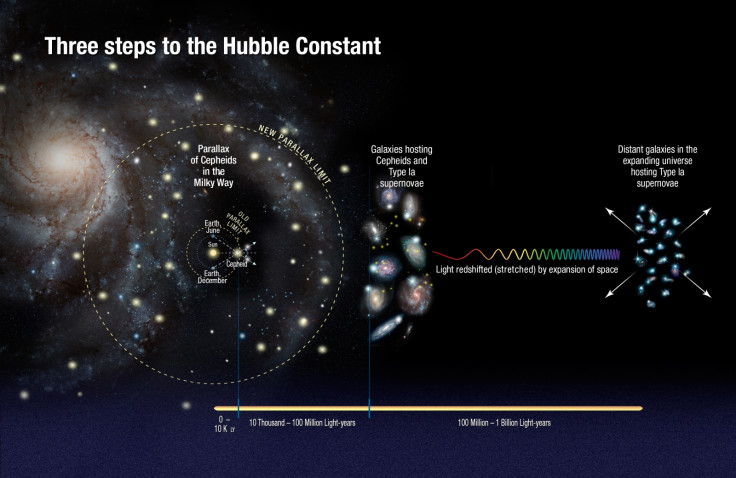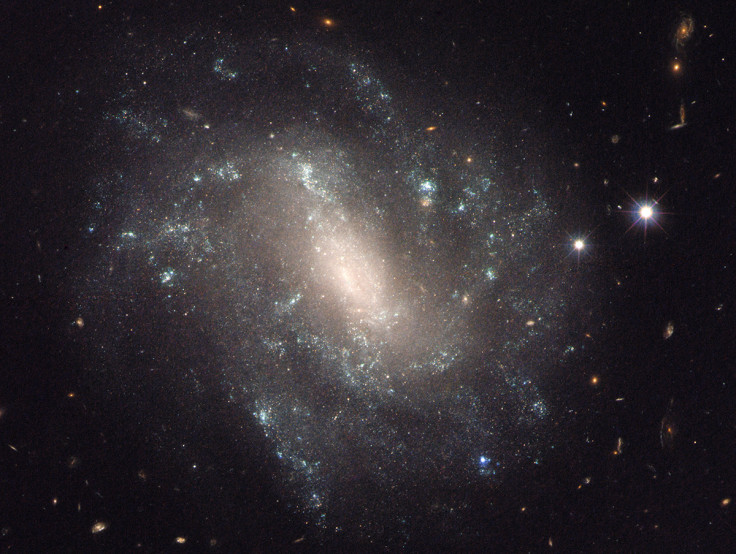Universe is expanding 9% faster than we thought offering clues to dark matter mysteries

The universe is expanding up to 9% faster than was previously thought, astronomers have discovered. Researchers say the discovery could offer clues as to the nature of dark matter and dark energy - mystery components that make up 95% of the universe.
Nasa and ESA scientists used the Hubble Space Telescope to refine the current rate of the universe's expansion with extreme accuracy. They did this by looking at the brightness of specific stars and supernovas that act as benchmarks for measuring distance. In total, they looked at around 2,400 Cepheid stars in 19 galaxies and 300 Type Ia supernovae in distant galaxies.
They compared the observed brightness of the stars and calculated the distances to the supernovae. Researchers then compared theses distances with the expansion of space by the light from receding galaxies. Put together, these measurements allowed the team to calculate how fast the universe was expanding.
The results, which will appear in The Astrophysical Journal, showed it is expanding at a rate of 73.2km/s per megaparsec (one megaparsec is 3.26 million light-years). At this rate, the distance between the stars will double in 9.8 billion years. This is 5 to 9% faster than the rate worked out through measurements of the Universe shortly after the Big Bang. Scientists say the margin of error in the new measurements is just 2.4%.

If confirmed, the measurements could give an insight into parts of the universe we still do not understand, including dark matter and dark energy. Put together, these components make up around 95% of the universe, yet we know virtually nothing about them.
Study leader Adam Riess, from Space Telescope Science Institute and The Johns Hopkins University, said: "This surprising finding may be an important clue to understanding those mysterious parts of the universe that make up 95% of everything and don't emit light, such as dark energy, dark matter, and dark radiation.
"If we know the initial amounts of stuff in the universe, such as dark energy and dark matter, and we have the physics correct, then you can go from a measurement at the time shortly after the Big Bang and use that understanding to predict how fast the universe should be expanding today. However, if this discrepancy holds up, it appears we may not have the right understanding, and it changes how big the Hubble constant should be today."
The team says the faster rate of expansion could be the result of dark energy – which we know is accelerating the universe's expansion – pushing galaxies apart with a greater or increasing strength. It could also be that dark matter has some unexpected characteristics that are causing the acceleration. A third idea is that there is a new type of subatomic particle that changed the balance of energy early in the history of the universe.
Lucas Macri, from Texas A&M University, who collaborated on the study, said: "We know so little about the dark parts of the universe, it's important to measure how they push and pull on space over cosmic history."
© Copyright IBTimes 2025. All rights reserved.






















